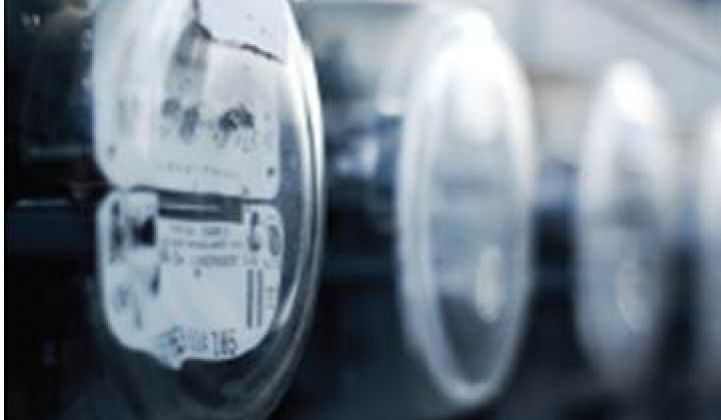It’s a bitter pill for German smart meter manufacturers, but the news is easier to swallow for the country’s utility ratepayers: the German Ministry of Economics announced it will not follow EU recommendations to install smart meters for 80 percent of consumers by 2022.
The ministry reviewed a cost-benefit analysis by Ernst & Young and is concerned that the lion’s share of the costs could fall to households, while the bulk of benefit could go to industrial consumers with larger opportunities to reduce power consumption and leverage load shifting.
Ernst & Young's study found higher costs than benefits for average households. If only customers that received a meter paid for them, it would cost €89 ($118) per household per year to cover device and installation costs, which is more than the expected monetary benefits. If costs are distributed among all consumers right from the start of the rollout, including customers that do not install a smart meter, the cost would drop to €29 ($38). The analysis extends until 2032, with AMI rollout assumed to begin in 2014.
Depending on local network topology and demand patterns, smart meters can have a larger or smaller impact on mitigating the need for expensive capacity additions. Ernst & Young’s analysis included the network benefits of demand reductions and load shifting, but authors said these factors were modeled conservatively, due to considerable uncertainties.
“The results show that we have to increase smart meter deployment in a systematic manner, and therefore in line with Germany’s energy switch policy,” Stefan Kapferer, under-secretary of state in the Ministry of Economics, said in a statement, referring to the country’s ongoing transition away from nuclear power. “Lump-sum approaches are inappropriate for the current situation.”
What appears to be a step away from EU policy goals is actually in line with them, at least in the short run. The 2009 EU directive gives leeway to member states as to how and when they reach the 80 percent smart meter deployment objective, including -- in fact, recommending -- that countries review regional markets and, if necessary, work out individual plans.
So Germany did just that, at least the reviewing part. But there is still the discrepancy between Germany’s ambitious renewable energy goals and the lack of a concise smart meter strategy.
The Ministry for the Environment’s “Energiekonzept 2050” includes 60 percent of energy consumption from renewable sources by 2050, and renewables providing 80 percent of electricity generation. Given the growth of distributed PV and wind generation, more metering will be needed at both the generation and consumption sides of the grid.
Following the reform of Germany's Renewable Energy Act in 2011, large-scale consumers are now obliged to install smart metering devices. This includes new buildings and those undergoing major renovations, as well as consumers with an annual consumption of more than 6000 kilowatt-hours, about 50 percent above average annual household consumption. Part of the story behind Germany’s delay in smart meter deployment is the special emphasis on data security and interoperability. A technical directive covering data security has recently been completed and is considered an important steppingstone.
Instead of changing direction, Ernst & Young recommends extending metering requirements to older and lower capacity generators. Up until now, only those with an installed capacity of more than 7 kilowatts and connected after the year 2011 were required to install smart metering devices.
For vendors, the recommendation to extend metering requirements offers a ray of hope. It does not promise the mass market of households, but it adds a sense of direction to a hitherto ambiguous mix of regulatory perspectives. Nevertheless, the vast number of Distribution System Operators (DSOs) in Germany complicates the situation. Over 900 different DSOs across the country have had very different ideas on PV plant requirements in the past. Without regulation, history could repeat itself for metering installations.
Overall, the decision comes at a tumultuous time regarding the EU’s view of Germany’s energy policy. The European Commission repeatedly criticized Germany’s Renewable Energy Law for providing loopholes for energy-intensive industries. Many are exempt from network fees and receive discounts on the heavily discussed renewables surcharge, which households do have to pay.
The German magazine Der Spiegel reported interventions by German government officials in Brussels to prevent proceedings before September, when Germany holds parliamentary elections. Reacting to EU pressure this week, the government decided to abandon network fee exemptions for industrial customers, leaving the discussion on the renewables surcharge until after the elections.



